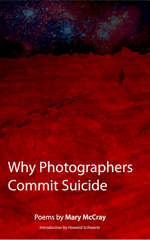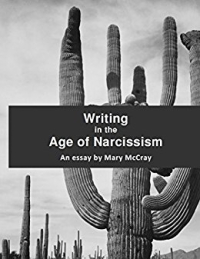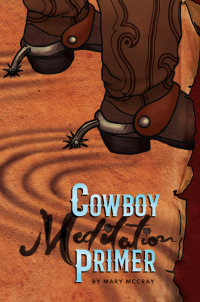 Next up in the stack is “Some Aspects of Grotesque in Southern Fiction” by Flannery O’Connor (1960). Listen to her reading from the essay.
Next up in the stack is “Some Aspects of Grotesque in Southern Fiction” by Flannery O’Connor (1960). Listen to her reading from the essay.
You probably can’t get through a general writing program in America without reading this essay. It’s been a very influential and important essay in retrospect, as has O'Connors fiction, important for not just fiction writers but in many ways for poets.
And I have to say, this essay came up in my stack at a very serendipitous time. Not only is there a new Flannery O’Connor documentary out now called Flannery, which I watched a few weeks ago, but I learned there that O’Connor and her father both died of Lupus, a fact which sent me into a big of a funk because I’m in the process of being diagnosed with an auto-immune disorder that might be Lupus, will most likely be Lupus. Everyone around me (including my new Rheumatologist) tells me Lupus is very survivable these days (in fact, my own Grandfather survived it); but because I’m a bit of a hypochondriac I’m already imagining my Greta Garbo death throes. And her real first name being Mary doesn't really help.
Anyway, O'Connor opens with this somewhat heady start: “I think that if there is any value in hearing writers talk, it will be in hearing what they can witness to and not what they can theorize about.”
She beings to discuss “literary problems” and how the 1950s contained no writerly consensus like the “1930s writers with similar social consciousness." Interesting this history has largely been erased from college classrooms, even though I read in Camille Paglia's book, Break, Blow Burn, that she sees socialism all over college coursework. More on that book later.
“Today each writer speaks for himself,” O'Connor says. My 1990s notes asks“is this dated?” My 2020 response was “no.” (I’m even argumentative with myself).
O'Connor maintains that every writer sees themselves as a realist writer. She then talks about being pigeonholed as a Southern writer:
“The first necessity confronting him will be to say what he is not doing; for even if there are no genuine schools in American letters today, there is always some critic who has just invented one and who is ready to put you into it. If you are a Southern writer, that label, and all the misconceptions that go with it, is pasted on you at once, and you are left to get it off as best you can…and are judged by the fidelity your fiction has to typical Southern life./I am always having it pointed out to me that life in Georgia is not at all the way I picture it, that escaped criminals do not roam the roads exterminating families, nor Bible salesmen prowl about looking for girls with wooden legs.”
She then talks about the point of a novel. And this is important because it explains her view of where relevant novels diverge from popular novels.
“There was a time when the average reader read a novel simply for the moral he could get out of it”
After watching the documentary I feel she’s casting her mother in this category of moral-seeking reader.
“Today many readers and critics have set up for the novel a kind of orthodoxy. They demand a realism of fact which may, in the end, limit rather than broaden the novel's scope. They associate the only legitimate material for long fiction with the movement of social forces, with the typical, with fidelity to the way things look and happen in normal life.”
She goes on to say,
“The writer has no rights at till except those he forges for himself inside his own work.”
“…as long as these works have vitality, as long as they present something that is alive, however eccentric its life may seem to the general reader, then they have to be dealt with; and they have to be dealt with on their own terms.”
Here is where O'Connor gave permission for the interests of the writer to diverge from the interests of the reader, the writer who seeks experimentation or uniqueness or expression of the self. It’s a very important, as is the example of her fiction itself. It was such a juicy time to be a fiction writer. All bets were off. Go your own way. Like all self care, it eventually turned in on itself until it became a narcissistic impulse.
I do say I don’t think the two extremes should be as competitive as they are: the self vs. the community. But we tend to view such things this way, very black and white, these days.
O’Connor then particularizes her ideas talking about the Southern grotesque:
“When we look at a good deal of serious modern fiction, and particularly Southern fiction, we find this quality about it that is generally described, in a pejorative sense, as grotesque. Of course, I have found that anything that comes out of the South is going to be called grotesque by the Northern reader, unless it is grotesque, in which case it is going to be called realistic…In these grotesque works, we find that the writer has made alive some experience which we are not accustomed to observe every day, or which the ordinary man may never experience in his ordinary life… the customary kind of realism have been ignored…there are strange skips and gaps …Yet the characters have an inner coherence, … Their fictional qualities lean away from typical social patterns, toward mystery and the unexpected.”
It’s so easy to see how her 1950s readerships needed some help in learning to read her stories.
“All novelists are fundamentally seekers and describers of the real, but the realism of each novelist will depend on his view of the ultimate reaches of reality.”
The lovely relativism we’ve all been taught to respect, this is it "the doctrine that knowledge, truth, and morality exist in relation to culture, society, or historical context, and are not absolute." (Google.com) It was a beautiful thing, relativism. But like all ideas put to action, it had unintended consequences. And I believe there’s a straight line to be drawn from the cult of individuality and respect for relativism to the political climate we live in today, where millions of people can flatly deny the reality of another group of millions of people.
And where does the suspicion of science come from (as seen from fifty years ahead of this essay)?
“Since the eighteenth century, the popular spirit of each succeeding age has tended more and more to the view that the ills and mysteries of life will eventually fall before the scientific advances of man, a belief that is still going strong even though this is the first generation to face total extinction because of these advances. If the novelist is in tune with this spirit, if he believes that actions are predetermined by psychic make-up or the economic situation or some other determinable factor, then he will be concerned above all with an accurate reproduction of the things that most immediately concern man, with the natural forces that he feels control his destiny. Such a writer may produce a great tragic naturalism, for by his responsibility to the things he sees, he may transcend the limitations of his narrow vision.
On the other hand, if the writer believes that our life is and will remain essentially mysterious, if he looks upon us as beings existing in a created order to whose laws we freely respond, then what he sees on the surface will be of interest to him only as he can go through it into an experience of mystery itself. His kind of … Such a writer will be interested in what we don't understand rather than in what we do. He will be interested in possibility rather than in probability. He will be interested in characters who are forced out to meet evil and grace and who act on a trust beyond themselves–whether they know very clearly what it is they act upon or not”
There a lot of good stuff in there: writing into the unknown, writing into possibility. She then goes on to talk about fiction and the senses…and distorting the senses….the wild that is “of necessity going to be violent and comic.” Do you recognize where we are vis a vis cultural stories? How violence and comedy have merged?
She then talks about grotesque being the true anti-bourgeois style and how America connects grotesque with the sentimental. She talks about the idea of compassion being overused.
“The kind of hazy compassion demanded of the writer now makes it difficult for him to be anti-anything.”
“In nineteenth-century American writing, there was a good deal of grotesque literature which came from the frontier” [I thought of Mark Twain here.]
This probably the most famous quote of the essay,
“Whenever I'm asked why Southern writers particularly have a penchant for writing about freaks, I say it is because we are still able to recognize one”
She goes on to describe the South as Christ-haunted if not Christ-centered. She says, “the freak can be sensed as a figure for our essential displacement that he attains some depth in literature.”
There’s a really interesting reference to William Faulker and the demands of the writer to “make it new” (which is another pressure of obtaining fame and individuality):
“…the individual writer will have to be more than ever careful that he isn't just doing badly what has already been done to completion. The presence alone of Faulkner in our midst makes a great difference in what the writer can and cannot permit himself to do. Nobody wants his mule and wagon stalled on the same track the Dixie Limited is roaring down.”
Ugh. She’s so good.
She goes back to talking about what good literature should avoid…
“Whenever the public is heard from, it is heard demanding a literature which is balanced and which will somehow heal the ravages of our times. In the name of social order, liberal thought, and sometimes even Christianity, the novelist is asked to be the handmaid of his age.”
There follows a questionable part about Henry James describing a black porter’s mistake. It could be a racist idea but I don’t even understand the point of it. So I couldn’t say. It’s good to note here that the documentary delves into whether O’Connor was a racist, a product of her times or a describer of the racist evils of her time.
“The novelist must be characterized not by his function but by his vision”
I question this idea now, having seen the effects of a fiction that absolves itself from cultural obligation. We are our stories. And horrifically, we become the stories we tell. Life coaches will tell you this. Certain American culture groups value stories more than other groups do. Where are we now?
“I once received a letter from an old lady in California who informed me that when the tired reader comes home at night, he wishes to read something that will lift up his heart. And it seems her heart had not been lifted up by anything of mine she had read. I think that if her heart had been in the right place, it would have been lifted up.
You may say that the serious writer doesn't have to bother about the tired reader, but he does, because they are all tired. One old lady who wants her heart lifted up wouldn't be so bad, but you multiply her two hundred and fifty thousand times and what you get is a book club.”
That was probably the second most famous sentence from the essay.
“I used to think it should be possible to write for some supposed elite, for the people who attend universities and sometimes know how to read, but I have since found that though you may publish your stories in Botteghe Oscure, they are any good at all, you are eventually going to get a letter from some old lady in California, or some inmate of the Federal Penitentiary or the state insane asylum or the local poorhouse, telling you where you have failed to meet his needs.”
“… The reader of today looks for this motion, and rightly so, but what he has forgotten is the cost of it. His sense of evil is diluted or lacking altogether, and so he has forgotten the price of restoration. When he reads a novel, he wants either his senses tormented or his spirits raised.”
“…We live now in an age which doubts both fact and value, which is swept this way and that by momentary convictions. Instead of reflecting a balance from the world around him, the novelist now has to achieve one from a felt balance inside himself.”
“…The great novels we get in the future are not going to be those that the public thinks it wants, or those that critics demand. They are going to be the kind of novels that interest the novelist”
“…The problem for such a novelist will be to know how far he can distort without destroying”
The above is just a fine line (such a hazy line) in retrospect. I think in the pre-neofascist era, I would have agreed with everything O’Connor has said. But I’ve had a change of heart. She ends with this:
“…I hate to think of the day when the Southern writer will satisfy the tired reader.”
I morn these ideas to some extent. I wish the writer could go his own way exclusively. I wish all of us could be disruptions. But what we end up with is an alienated, disrupted society. Now the reader is not only tired, but neurotically anxious and possibly psychotic (as a culture). So which way did we move exactly? We’re certainly as blind as we ever were, albeit nobody thinks they particularly are.
The literary goal of testing a readers discomfort seemed interesting and honorable, to shake people out of their complacency. The effort has surely taken over literary movies, fiction and poetry. But in the end it’s just made us all feel edgy.
We’ve absolved ourselves of any moral responsibility for our collective stories…and something has filled the void.
 I didn't recognize this essay at first. It's another one from David Rivard's class set called “On Disproportion” by Tony Hoagland. I’m predispositioned to like Hoagland. He’s very funny. And this essay is from one of my favorite books, his Real Sofistikashun: Essays on Poetry and Craft.
I didn't recognize this essay at first. It's another one from David Rivard's class set called “On Disproportion” by Tony Hoagland. I’m predispositioned to like Hoagland. He’s very funny. And this essay is from one of my favorite books, his Real Sofistikashun: Essays on Poetry and Craft.












